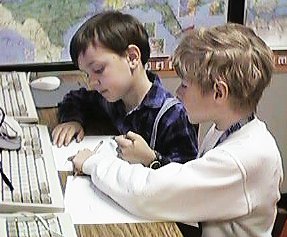Another interesting perspective that was brought up had to do with diversity. Our task originated in a small Alberta town and, therefore, lacked the kind of multicultural depth that Calgary classrooms have. This really stood out to another student, making us realize that we might make explicit more comprehensive modifications to our task work to include diverse populations.
These are just examples of how peer feedback has been beneficial for our group. Some other great points that were brought up in class related to how it's fun, offers a fresh look at something, leads to the improvement of work, and more. From the student perspective, when approched with care and developmentally appropriate language, I think the peer feedback process has great potential to help children connect on academic levels. Children are really good at making social connections based on their interests and personalities, however they less often require an academic connection. What implications can strong socio-academic connections have on their future learning?

One of my main goals in early childhood is to help students connect to one another in this way. That is, to get children to consider one another as academic peers that are able to share knowledge with the understanding that the teacher is not the filter for all useful/correct information. Older children understand this more and more intuitively as they become familiar with technology. Younger children, however, find it very difficult to move from an adult-centered type of learning, to one that often relies on peers. Obviously the teacher still has an important role, and Kindergarten children will not always have a collective answer. However, this is where the beginning steps take place to open up the community and the knowledge that lives within it. A space where children begin to become comfortable sharing their ideas, rather than right vs. wrong answers. I love the way the peer review process fosters this academic relationship building experience.
Our Great Task was taken from the Galileo website with the title Naming the West. We completed the first part of the original task and invite further feedback via the Peer Feedback page:
https://sites.google.com/site/investigatingnamesactivity/
thanks for your post,it is very nice post
ReplyDeletei am interesting of this post and i think every body like this post. best regards.
sap hana training in hyderabad